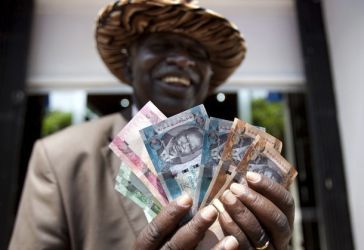NilePay mobile money launches in South Sudan
August 8, 2019 (JUBA) – NilePay PLC has partnered with Zain South Sudan to launch the first licensed mobile money service in South Sudan dubbed NilePay Mobile Money.

“NilePay Mobile Service’s partnership with Zain South Sudan is part of the company’s long-term strategy to enable eCommerce and digitize financial services across the country,” said the Director NilePay Mobile Money, Darius Mobe.
NilePay Mobile Money, he further noted, intends to offer the active 2 million, mobile users, a versatile and secure mobile payment solution, which is easy to scale and provides seamless customer experience.
“We are excited to have partnered with NilePay PLC to bring the mobile wallet services to the South Sudan market, which makes it more convenient and secure for users to withdraw and deposit money to their accounts while participating in the digital economy,” said the CEO of Zain South Sudan, Eng. Magdi Taha.
Nearly, 700 million people have reportedly registered mobile money accounts, transacting an average of $1 billion a-day worldwide.
However, about 2 billion people reportedly still lack access to basic financial services, implying they miss what mobile money provides.
About 90% of South Sudan government’s revenue comes from oil resources, while the rest is collected in the form of customs taxes, market taxes, road taxes, income tax and permits, among others.
In March this year, the International Monetary Fund (IMF) said policy adjustments are urgently required to address South Sudan’s economic crisis.
(ST)
